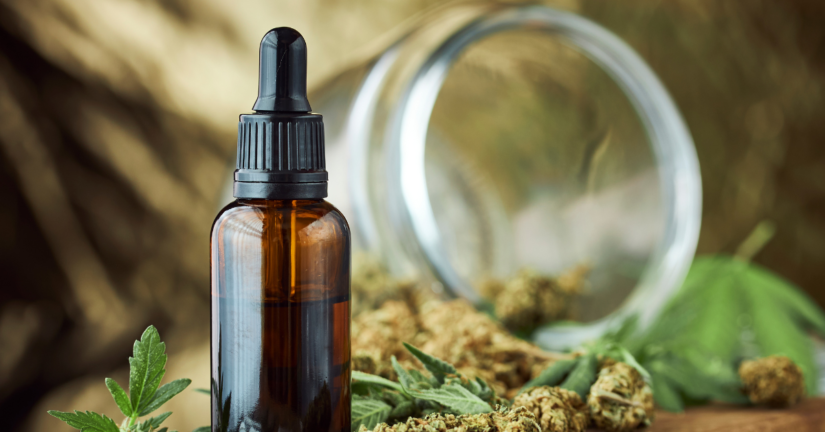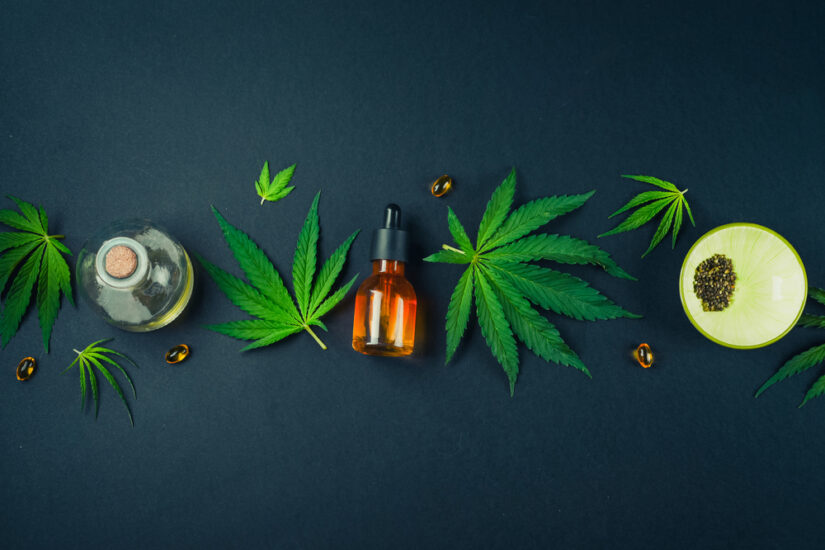
March 16, 2023
Tetrahydrocannabinol, also known as THC, is a psychoactive substance that’s extracted from the marijuana plant, then processed into various forms and concentrations.
THC is predominantly illegal in Texas. People shouldn’t use it, sell it, or transport it. Disregarding THC regulations is considered a felony, and it could lead to spending 99 years in prison, in addition to a penalty of $50,000.
It’s wise then to understand the THC oil Texas regulations. And make sure to always stay on the right side of the law.
What Is THC Oil?
THC oil is a substance that’s extracted from marijuana. Tetrahydrocannabinol is the main psychoactive component of the cannabis plant, and it’s what gives marijuana its mood-altering effect.
However, THC is far more concentrated in the oil form than it is in the organic plant form. That’s why it gets a very different legal treatment from the authorities. For starters, THC oil is categorized as a group-2 drug, which makes it a serious substance that shouldn’t be carried around lightly.
The effect of THC concentrates is overwhelming and potentially dangerous, especially when it’s used in fast-acting forms, like smoking it.
THC oil is currently used in many forms of edibles, candies, and vapes, in addition to plenty of other derivatives. As far as the law is concerned, they’re all THC oil varieties.
Is the Possession of THC Oil the Same as the Possession of Marijuana?
There are some technical differences between marijuana and its extracts. Usually, the oils and other extracts are far more potent than the plant. That’s why the Texas Controlled Substances Act drafted a detailed definition for each.
Marijuana is legally defined as the leaves and specific other parts of the Cannabis Sativa L. plant. Whereas, the extracts include oils, concentrates, and various other processed parts.
According to the authorities, there’s a different penalization system for the possession of marijuana than for the possession of its extracts and concentrates.
Like most other drugs, the amount of material in possession dictates the characterization of the penalty. Usually, possession of small amounts of marijuana with the intent of personal use is treated as a misdemeanor.
For example:
- If a person has less than two ounces of marijuana, this would be considered a class-B misdemeanor.
- From two to four ounces, the charge increases to a class-A misdemeanor.
- Amounts above four ounces indicate that the intent goes beyond personal usage. Here, the state charges that individual with a felon. This is often punished by six months to two years in a state jail.
- From four to five pounds, the person is penalized for a third-degree felony. This is punishable by spending two to ten years in prison.
- The state code also includes penalties for the possession of much larger amounts of marijuana, which is a matter of organized crime. The penalties in these cases can reach up to ninety-nine years in prison for having two thousand pounds or more.
Provable possession with the intent of transportation, distribution, or selling comes with tougher penalties, which is understandable.
According to the Texas code, the penalties associated with the possession of THC are much heavier than those for marijuana. Here’s how.
What Is the Penalty for THC Oil Possession in Texas?
According to Section 481.002(26) of the Texas Penal Code, THC is classified as a group-2 drug. It comes right after cocaine, heroin, and methamphetamine, which are classified as group-1 drugs.
Here’s a summary of penalization according to the amount of THC oil in possession.
| Amount of THC oil in Possession | Crime Characterization | Penalization |
| 1 gram | Felony | Up to two years in jail and a penalty of $10,000 |
| 1-4 grams | Third-degree felony | Up to 10 years in prison and a penalty of $10,000 |
| 4-400 grams | Second-degree felony | Up to 20 years in prison and a penalty of $10,000 |
| 400+ grams | First-degree felony | From 5 to 99 years in prison and a penalty of $50,000 |
Clearly, the consequences of using or carrying even the smallest amounts of THC oil can be quite dismal.
Once the state presses charges, it’s almost impossible to get a light sentence. It’s also worth noting here that carrying even the minutest amounts of THC oil wouldn’t be treated as a misdemeanor.
Additionally, edibles, high concentrations of THC oil, and other extracts laced with the substance can get heavier penalties.

Is Possession of THC the Same as Selling or Transportation?
Possession of tiny amounts of THC for personal use is often less consequential than selling or transporting large amounts. That is if the material in question is non-processed THC oil. Anything less than one gram of THC oil is already a state felony.
Carrying one to four grams of THC oil is considered a third-degree felony. The punishment escalates exponentially from then on, till it reaches 99 years in prison if a person carries 400 grams. This is less than a pound of that substance.
The larger amounts are associated with possession with the intent of distribution and selling. In Texas, this is a major crime, and the state doesn’t go easy with dealers.
Many users opt for other forms of the substance such as THC-laced edibles. The added food materials are considered part and parcel of the drug. In legalese, these are called adulterants and diluents, and they can magnify the penalty in a big way.
To Sum Up
In 2012, Colorado and Washington legalized the recreational use of cannabis. Since then, various other states have approved the drug. The widespread processing of marijuana into edibles, smoke, vape, and various other forms has somewhat normalized it as a legitimate material.
Care should be taken though, as many states are still against all kinds of usage of marijuana or any of its extracts. THC oil, which is the psychoactive material derived from cannabis, is a classified drug in Texas.
Using or carrying THC oil in any shape, size, or form in Texas can easily get a person into big trouble. The bottom line is to avoid coming in contact with marijuana, or any other drug, while you’re in Texas. If you’re facing drug possession charges, you need an experienced criminal defense lawyer who can help you navigate through the legal system. The Napier Law Firm offers just that. We will work tirelessly to build a strong defense for your case. Don’t wait until it’s too late, call 713-470-4097 and get in touch with a criminal defense lawyer. Let the experts at The Napier Law Firm help you achieve the best possible outcome for your case.